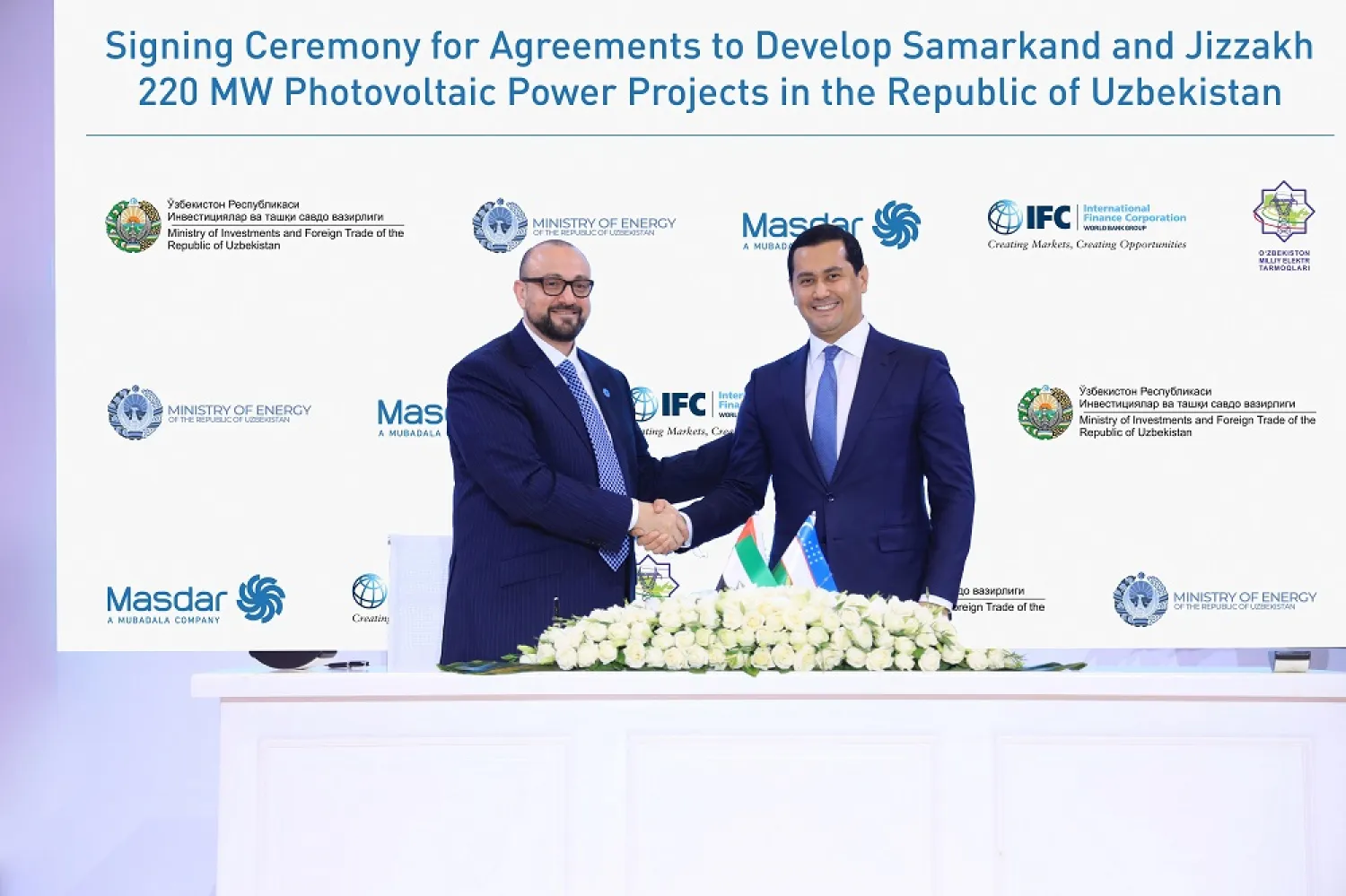The UAE’s clean energy firm Masdar announced Tuesday that it is expanding its footprint in Uzbekistan, with the signing of agreements to develop two photovoltaic (PV) power projects in the country for a combined capacity of 440 megawatts.
Sardor Umurzakov, Deputy Prime Minister and Minister of Investments and Foreign Trade of Uzbekistan, signed the Investment Agreements for both projects with Mohamed Jameel Al Ramahi, Chief Executive Officer of Masdar.
The Power Purchase Agreements were signed by Sobirjon Artikov, First Deputy Chairman of the Board of JSC National Electric Grid of Uzbekistan, and Masdar’s Al Ramahi.
“The Government of Uzbekistan opened up the power sector to private investments by implementing public-private partnership projects that can attract foreign capital efficiently and transparently,” Umurzakov said.
Under the agreements, Masdar will develop, build and operate the plants, which will each have a capacity of 220 MW, on a public-private partnership basis. Commercial operation of the projects, which will be located in the Samarkand and Jizzakh regions of Uzbekistan, is expected to start in the first quarter of 2023.
“The Ministry of Energy has been working closely with the IFC to help Uzbekistan reach its goal of 25 percent of energy consumption deriving from renewable sources by 2030,” said Alisher Sultanov, Minister of Energy of Uzbekistan. “These projects are key components in our ambitious strategy to develop environmentally friendly renewable sources of energy to meet our growing electricity demand.”
“These new projects are a further demonstration of Masdar’s commitment to supporting Uzbekistan in achieving its clean energy and climate change objectives,” Al Ramahi said.
He added, “Uzbekistan is a key strategic investment destination for Masdar as the Government continues to take a leadership role in clean energy projects in the region, and accelerate the nation’s energy transition. Masdar is proud to support Uzbekistan’s decarbonization strategy through our strong portfolio of wind and solar projects in the country.”
In May, Uzbekistan’s Ministry of Energy announced that Masdar was selected for both projects based on a competitive tender. Masdar has also won the tender for another solar project in Uzbekistan, for a 457 MW photovoltaic solar power plant in the Sherabad district of the Surkhandarya province.
The new project wins add to Masdar’s existing projects in Uzbekistan, with the company last year announcing financial close on the 100 MW Nur Navoi Solar Project – Uzbekistan’s first successfully financed independent power producer (IPP) solar project.
Masdar has also agreed to develop, build and operate a 500 MW wind farm in Zarafshan, and in April, the company signed an Implementation Agreement with the Government of Uzbekistan to extend the capacity of the project to up to 1.5 gigawatts, making it the largest in Central Asia.
Under its renewable energy program, Uzbekistan aims to deploy 5 GW of solar and 3 GW of wind power capacity by 2030, as it targets meeting 25 percent of electricity needs from renewable sources by that year.









